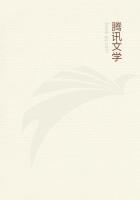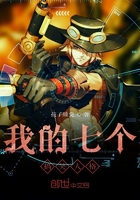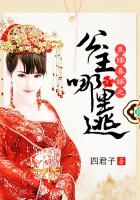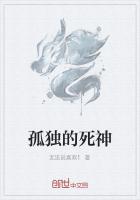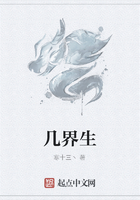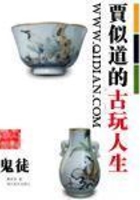On this subject, Machiavelli felt most strongly. Indeed, the expulsion of the foreign tyrants, and the restoration of that golden age which had preceded the irruption of Charles VIII, were projects which, at that time, fascinated all the master-spirits of Italy. The magnificent vision delighted the great but ill-regulated mind of Julius. It divided with manuscripts and saucers, painters and falcons, the attention of the frivolous Leo. It prompted the generous treason of Morone. It imparted a transient energy to the feeble mind and body of the last Sforza. It excited for one moment an honest ambition in the false heart of Pescara. Ferocity and insolence were not among the vices of the national character. To the discriminating cruelties of politicians, committed for great ends on select victims, the moral code of the Italians was too indulgent.
But, though they might have recourse to barbarity as an expedient, they did not require it as a stimulant. They turned with loathing from the atrocity of the strangers who seemed to love blood for its own sake; who, not content with subjugating, were impatient to destroy; who found a fiendish pleasure in razing magnificent cities, cutting the throats of enemies who cried for quarter, or suffocating an unarmed population by thousands in the caverns to which it had fled for safety. Such were the cruelties which daily excited the terror and disgust of a people among whom, till lately, the worst that a soldier had to fear in a pitched battle was the loss of his horse and the expense of his ransom.
The swinish intemperance of Switzerland; the wolfish avarice of Spain; the gross licentiousness of the French, indulged in violation of hospitality, of decency, of love itself; the wanton inhumanity which was common to all the invaders - had made them objects of deadly hatred to the inhabitants of the Peninsula. The wealth which had been accumulated during centuries of prosperity and repose was rapidly melting away. The intellectual superiority of the oppressed people only rendered them more keenly sensible of their political degradation. Literature and taste, indeed, still disguised with a flush of hectic loveliness and brilliancy the ravages of an incurable decay.
The iron had not yet entered into the soul. The time was not yet come when eloquence was to be gagged, and reason to be hoodwinked, when the harp of the poet was to be hung on the willows of Arno, and the right hand of the painter to forget its cunning. Yet a discerning eye might even then have seen that genius and learning would not long survive the state of things from which they had sprung, and that the great men whose talents gave lustre to that melancholy period had been formed under the influence of happier days, and would leave no successors behind them. The times which shine with the greatest splendor in literary history are not always those to which the human mind is most indebted. Of this we may be convinced, by comparing the generation which follows them with that which had preceded them. The first fruits which are reaped under a bad system often spring from seed sown under a good one.
Thus it was, in some measure, with the Augustan age. Thus it was with the age of Raphael and Ariosto, of Aldus and Vida.
Machiavelli deeply regretted the misfortunes of his country, and clearly discerned the cause and the remedy. It was the military system of the Italian people which had extinguished their valor and discipline, and left their wealth an easy prey to every foreign plunderer. The secretary projected a scheme, alike honorable to his heart and to his intellect, for abolishing the use of mercenary troops, and for organizing a national militia.
The exertions which he made to effect this great object ought alone to rescue his name from obloquy. Though his situation and his habits were pacific, he studied with intense assiduity the theory of war. He made himself master of all its details. The Florentine government entered into his views. A council of war was appointed. Levies were decreed. The indefatigable minister flew from place to place in order to superintend the execution of his design.
The times were, in some respects, favorable to the experiment. The system of military tactics had undergone a great revolution. The cavalry was no longer considered as forming the strength of an army. The hours which a citizen could spare from his ordinary employments, though by no means sufficient to familiarize him with the exercise of a man-at-arms, might render him a useful foot-soldier. The dread of a foreign yoke, of plunder, massacre, and conflagration, might have conquered that repugnance to military pursuits which both the industry and the idleness of great towns commonly generate.
For a time the scheme promised well. The new troops acquitted themselves respectably in the field. Machiavelli looked with parental rapture on the success of his plan, and began to hope that the arms of Italy might once more be formidable to the barbarians of the Tagus and the Rhine. But the tide of misfortune came on before the barriers which should have withstood it were prepared. For a time, indeed, Florence might be considered as peculiarly fortunate. Famine and sword and pestilence had devastated the fertile plains and stately cities of the Po. All the curses denounced of old against Tyre seemed to have fallen on Venice. Her merchants already stood afar off, lamenting for their great city. The time seemed near when the sea-weed should overgrow her silent Rialto, and the fisherman wash his nets in her deserted arsenal. Naples had been four times conquered and reconquered by tyrants equally indifferent to its welfare, and equally greedy for its spoils.

